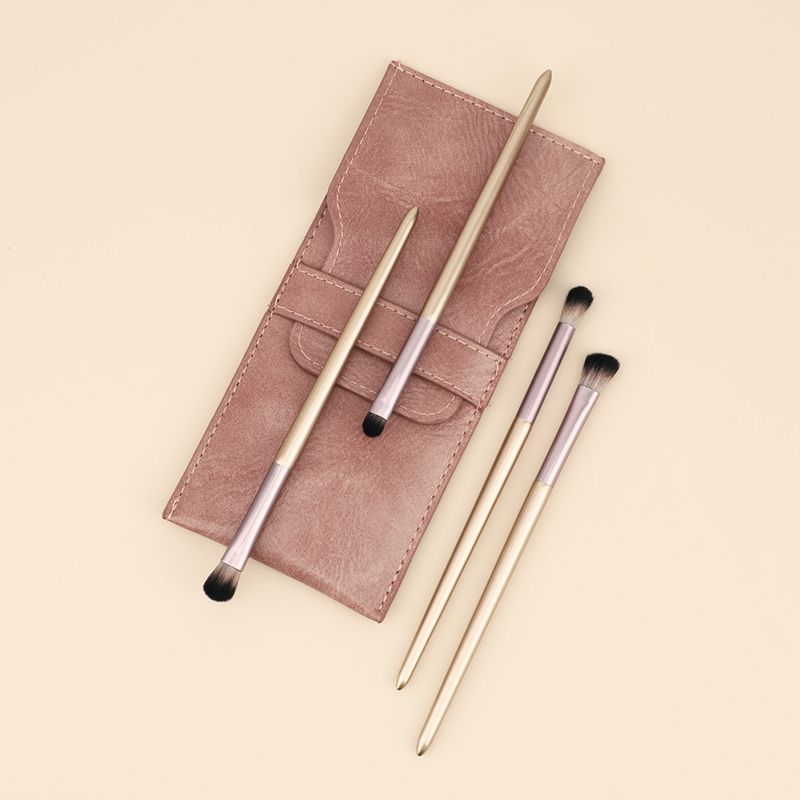Industry news
Consumer Concerns Over Bristle Shedding Drive Demand for Quality Assurance Certifications
- 795 Views
- 2025-08-03 01:31:21
Consumer Concerns Over Bristle Shedding Drive Demand for Quality Assurance Certifications
For makeup enthusiasts, a high-quality brush is more than a tool—it’s a partner in crafting flawless looks. But there’s one frustration that transcends brand loyalty and price tags: bristle shedding. Whether it’s a stray hair ruining a winged liner or clumps falling into foundation, this common issue has shifted from a minor annoyance to a dealbreaker, pushing consumers to demand stricter quality assurance (QA) certifications for cosmetic brushes.
The Consumer Pain Point: Why Bristle Shedding Hits Hard
Recent market research highlights the urgency of the problem. A 2024 survey by BeautyInsight found that 68% of respondents cited “no bristle shedding” as their top priority when buying makeup brushes, outranking “softness” (52%) and “aesthetic design” (38%). Worse, 41% reported stopping use of a brand entirely after experiencing shedding, with 29% sharing negative reviews online—damaging brand reputations in an era of social media scrutiny.

The consequences extend beyond frustration: loose bristles can irritate skin, clog pores, or even contaminate products. For consumers investing in premium formulas, a shedding brush undermines both the makeup experience and the value of their purchases. This has created a clear mandate: brands must prove their brushes are built to last.
Behind the Shedding: Root Causes in Manufacturing
To address the issue, it’s critical to understand why bristles fail. Industry insiders point to three key culprits:
- Subpar bristle materials: Low-grade nylon or polyester filaments lack tensile strength, snapping under minimal pressure. In contrast, high-quality PBT (polybutylene terephthalate) fibers, known for elasticity and durability, reduce breakage by up to 40%.
- Weak adhesion: Cheap glues or improper curing during production cause bristles to loosen, especially when exposed to moisture (e.g., washing). Modern formulations, like formaldehyde-free热熔胶 (hot-melt adhesives), offer stronger bonds but require strict process control.
- Inconsistent craftsmanship: Manual bristle insertion often leads to uneven density, leaving some hairs poorly anchored. Automated植毛机 (flocking machines), calibrated to precision, minimize this risk but demand higher upfront investment.
QA Certifications: From “Nice-to-Have” to “Must-Have”
As consumer awareness grows, QA certifications have evolved from marketing gimmicks to non-negotiable credentials . Leading standards now set clear benchmarks for bristle integrity:
- OEKO‑TEX® Standard 100: This certification ensures bristles and adhesives are free from harmful substances (e.g., heavy metals, formaldehyde) and undergo rigorous tensile tests—bristles must withstand 5N of force without breaking or detaching .
- ISO 9712: Focused on manufacturing processes, it mandates regular equipment calibration and batch testing; certified factories show 30% fewer shedding-related defects than non-certified counterparts.
- FDA Compliance: For brushes sold in the U.S., FDA guidelines require adhesives to be skin-safe and bristle materials non-toxic—a baseline that now aligns with consumer expectations for longevity .
Brands embracing these certifications are reaping rewards . Indie label EcoBrush, which adopted OEKO‑TEX® in 2023, reported a 55% increase in repeat purchases and a 22% boost in social media engagement, with customers explicitly mentioning “no shedding” in reviews. Larger players like Sigma Beauty have integrated ISO logos into packaging, seeing a +$12M annual revenue lift from their certified lines.
The Road Ahead: Certifications as Competitive Currency
The demand for QA certifications is reshaping the industry’s landscape. Smaller manufacturers, once overshadowed by big brands, now use certifications to carve niches—proving that quality, not just marketing budgets, drives trust. Meanwhile, retailers are upping the ante: Sephora’s 2024 “Clean Tools” initiative requires all brushes to display at least one recognized QA certification by 2025, or risk delisting.
For manufacturers, the message is clear: certifications are no longer optional. They’re a strategic investment in consumer trust, operational excellence, and long-term market relevance. As one industry leader put it: “A brush that doesn’t shed isn’t just a product—it’s a promise. And in today’s market promises need proof.”
In the end, the consumer’s voice has spoken: when it comes to makeup brushes, reliability is non-negotiable. QA certifications aren’t just about meeting standards—they’re about meeting the moment. And for brands willing to











